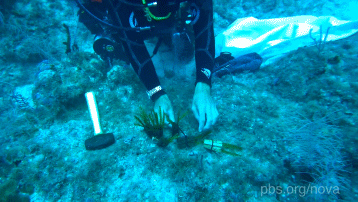The Comic-Book Guys Quivering in Fear of Cosplay, Noah Berlatsky, The Atlantic, December 10, 2014
The backlash to cosplay is in part guys trying to keep girls out of the male clubhouse. But in this context it can also be seen as feminized guys panicking at yet another in a long line of demonstrations that the male clubhouse isn’t all that male to begin with. You could argue that cosplay’s associations with fashion actually make it more highbrow than comics—the New York fashion runway and the New York gallery scene are more kin than either is to low pulp superhero comics. Cosplay is appropriating superheroes for art, much as pop art has done—and some in comics fear the results.
But they shouldn’t. The truth is that cosplay is not a continuation of pop-art denigration by other means. Instead, it’s an antidote. Pop art’s self-conscious manipulation of comics is only possible, or painful, in a world where comics defines its legitimacy in narrow terms. Lichtenstein is only an outsider co-opting comics if you insist on seeing Lichtenstein as something other than a comics artist himself. Cosplay—like the Batman TV series before it—could be a way for fans to be the pop artists: to cast aside the wearisome performance of legitimacy for a more flamboyant, less agonized fandom. Once you stop neurotically policing boundaries, the question of whether comics or superheroes are masculine or feminine becomes irrelevant. If superheroes and comics are for everyone, that “everyone” automatically includes people of all genders, wearing whatever they wish.
The Real Story Of Apollo 17… And Why We Never Went Back To The Moon, Andrew Liptak, io9, December 12, 2014 Continue reading


![By Karen Carr (http://www.karencarr.com/tmpl1.php?CID=196) [CC-BY-3.0 (http://creativecommons.org/licenses/by/3.0)], via Wikimedia Commons By Karen Carr (http://www.karencarr.com/tmpl1.php?CID=196) [CC-BY-3.0 (http://creativecommons.org/licenses/by/3.0)], via Wikimedia Commons](http://crypticphilosopher.com/wp-content/uploads/2014/09/VMNH_megalodon.jpg) The
The ![By Insomnis (Own work) [CC-BY-SA-3.0 (http://creativecommons.org/licenses/by-sa/3.0)], via Wikimedia Commons By Insomnis (Own work) [CC-BY-SA-3.0 (http://creativecommons.org/licenses/by-sa/3.0)], via Wikimedia Commons](http://crypticphilosopher.com/wp-content/uploads/2014/09/Spinosaurus.jpg)

![Blauerauerhahn [GFDL (http://www.gnu.org/licenses/fdl.html), CC BY-SA 3.0 (http://creativecommons.org/licenses/by-sa/3.0/deed.en), CC BY-SA 2.5-2.0-1.0 (http://creativecommons.org/licenses/by-sa/2.5/deed.en)], via Wikimedia Commons Blauerauerhahn [GFDL (http://www.gnu.org/licenses/fdl.html), CC BY-SA 3.0 (http://creativecommons.org/licenses/by-sa/3.0/deed.en), CC BY-SA 2.5-2.0-1.0 (http://creativecommons.org/licenses/by-sa/2.5/deed.en)], via Wikimedia Commons](http://crypticphilosopher.com/wp-content/uploads/2014/08/Haarbalgmilbe.jpg)